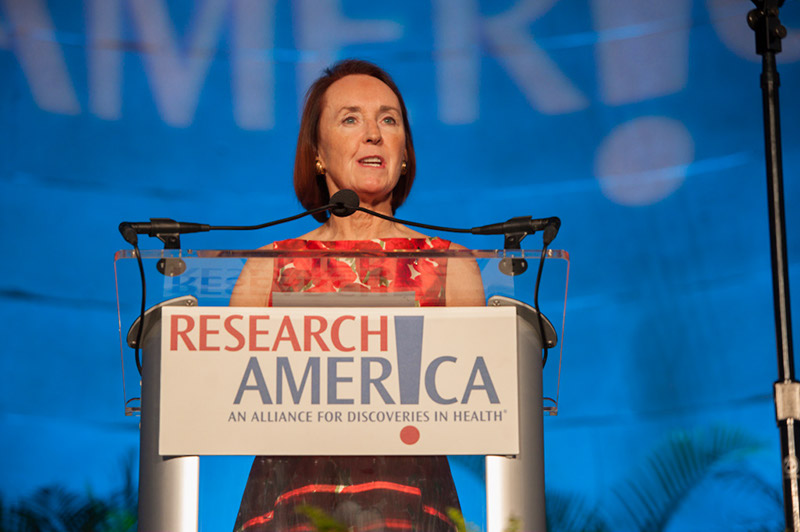The Clock is Ticking

On the Hill: Not everything is uncertain post-election. Regardless of the final outcome of party control in the House and Senate for the 118th Congress, which commences on January 3, the current Congress must still pass a final FY23 spending package. The clock is ticking.
We have sent a letter to congressional leadership urging passage of an FY23 omnibus package that provides robust funding for our federal research agencies. I urge you to take a moment to contact your representatives in Congress, using this editable email. And watch for an ad campaign from the Science and Technology Action Committee that will blanket the beltway beginning next week. Existential threats won’t go away by ignoring them; the nation must step up!
Post-Election Briefing on Tuesday!: Join us for an in-depth, bipartisan panel discussion on next year’s legislative outlook for science, medical research, and public health. Moderated by PBS NewsHour White House Correspondent Laura Barrón-López, the discussion will take place on Tuesday, November 15, from 11 a.m. – 12:45 p.m. ET (virtual and in person).
Panelists:
- The Honorable Charlie Dent, Executive Director & Vice President, The Aspen Institute; U.S. House, 2005-2018; Research!America Board of Directors
- The Honorable Bart Gordon, Partner, K&L Gates LLP; U.S. House, 1985-2011; Research!America Board of Directors
- Maura Keefe, Partner, Keefe Singiser Partners
- Sudip Parikh, PhD, Chief Executive Officer, AAAS; Executive Publisher, Science Journals; Research!America Board of Directors
Confidence in Research: Elsevier, in partnership with Economist Impact, has released a report about how the pandemic has affected the research environment – from the perspective of researchers themselves. The Confidence in Research Report synthesizes findings from a global survey of more than 3,000 scientists and a series of expert panels held around the world. Research!America partnered with Elsevier to host the U.S. panel discussion, held last July (watch highlights of the U.S. panel).
An article in Inside Higher Ed nicely summarizes the findings. A major takeaway – and a major opportunity – is the need scientists express for more training in public engagement. Some 59% of U.S. researchers would like more opportunities to engage with policymakers, and 57% want communications training. The survey also found 79% of U.S. respondents agree the pandemic increased the importance of science bodies and researchers explaining research findings to the public.
Strategies to Counter Misinformation: A new resource from the American Psychological Association offers advice on best practices, tools, and strategies for engaging with misinformation in the workplace. These tools apply more broadly as well.
Check out online games from the University of Cambridge “Inoculation Science” project to provide the skills for “‘prebunking’ conspiratorial, electoral, and medical disinformation.” It also explains the science behind each game; fascinating!
Be Sure to Say Thanks: Public Health Thank You Day is coming up on Monday, November 21. Join Research!America, leading public health organizations, and public officials to say “thank you” to our public health workforce, who labor every day to keep our drinking water clean, our communities healthy, and our children safe. Download our social media toolkit and share on Facebook, Twitter, and LinkedIn. Your short post can go a long way!
Over the weeks leading up to #PHTYD, we’re sharing interviews with public health professionals. The first in our series is a conversation with Alexandra Harris, MS, MPH, Emergency Management Specialist for the Office of Emergency Management, Prince George’s County Office of Homeland Security. She discusses how emergency management plays a critical role at the intersection of preparedness and public health.
ICYMI: On Monday, we heard from Aisling McDonough, Chief of Staff to Representative Anna Eshoo (D-CA, chair of the Health Subcommittee of the Energy and Commerce Committee). In an enlightening alliance members-only discussion, McDonough shared the business before the Subcommittee in the remaining months of 2022 and going forward. If you’d like to attend future Research!America member-only discussions, reach out to Joel Nepomuceno to learn more about the benefits to your organization of joining our alliance.
Upcoming Alliance Discussion: Join us next Wednesday, November 16, at 1 p.m. ET for our next alliance discussion, featuring Elizabeth Thompson, CEO of the National Eating Disorders Association. We look forward to a thoughtful discussion about a group of disorders – the range and implications of which may surprise you.




